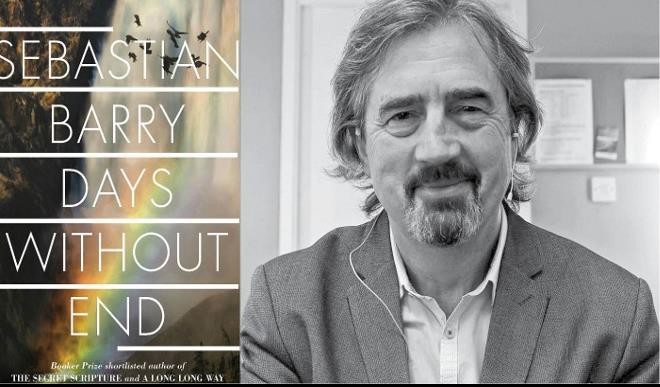Walter Scott Prize for Historical Fiction unveils 2017 shortlist
Judges hail vintage year as major authors including Sebastian Barry and Rose Tremain contend alongside unfamiliar names for £25,000 honour Sebastian Barry and Francis Spufford are to replay their battle for the Costa Book of the Year Award after both were shortlisted for the 2017 Walter Scott prize for historical fiction. The two feature on […]


Judges hail vintage year as major authors including Sebastian Barry and Rose Tremain contend alongside unfamiliar names for £25,000 honour
Sebastian Barry and Francis Spufford are to replay their battle for the Costa Book of the Year Award after both were shortlisted for the 2017 Walter Scott prize for historical fiction. The two feature on a shortlist that pits high-profile authors against virtual unknowns in what the judges described as one of the best years they have seen for the £25,000 award.
Barry’s Costa-winning Days Without End and Spufford’s fiction debut Golden Hill will be strong contenders for the award, which was set up in 2010. Both are set in the US, with Spufford portraying 18th-century Manhattan in what the Guardian described as “a frolicsome first novel”. Barry’s novel unfolds a century later amid the carnage of the civil war and was praised by judges as pulsing with “courage, loyalty and, amid the horrors, grace. This is a living novel.”
The two authors head a shortlist that also includes an Orange prize winner – Rose Tremain – and a Man Booker winner – Graham Swift, whose Mothering Sunday charts the journey of housemaid and orphan Jane Fairchild from servitude to independence.
Four women were shortlisted, in striking contrast to last year, when only one woman made the cut. Tremain leads the way with the Baileys-longlisted The Gustav Sonata, which is set in Switzerland during and after the Second World War and was described by judges as “by turns cold and bleak, life-affirming and always very beautifully written”.
The three other books by women in contention are Jo Baker’s A Country Road, A Tree, Charlotte Hobson’s Russian revolution drama The Vanishing Futurist and Hannah Kent’s The Good People, set in rural Ireland in the 1820s. A Country Road, A Tree is a dramatisation of Samuel Beckett’s experiences in France as part of the resistance during the Second World War. The judges praised the book’s “quiet, lyrical beauty”.
Baker said she was inspired to write the book after learning about Beckett’s escape on foot from Paris after he was betrayed to the Nazis. “I had this image of him as a Don Quixote character stuck on a donkey, like one of his own characters stuck in a place with sand gathering up around him,” she said. “When I read up about him I realised what extraordinary decisions he had to make and what that revealed of his character.”
In comparison with the other books, Hobson and Kent received relatively few reviews when they were first published, a fact that judge Kate Figes said proved the value of having a longlist selected by a panel of readers rather than professional judges. “There were several books that I hadn’t heard of,” the author said, adding: “These are really strong books that offer some sort of insight into today, some context for what is happening now. That may be why people want to read historical fiction, because we have lost that context.”
Figes is joined on the panel to decide the winner by broadcasters James Naughtie and Elizabeth Buccleuch, as well as writers Katharine Grant and Elizabeth Laird, the Abbotsford trust’s James Holloway, with historian Alistair Moffat serving as chair. The prize will be announced at the Borders book festival on 17 June.
Source:TheGuardian.com
